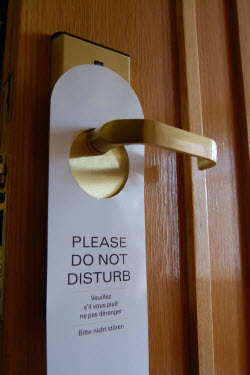Work differs. The other day somebody told me about the problem of getting into some kinds of work. It went something like this (paraphrasing):
With computer programming it takes more time to get in and out of it. You can’t just stop to talk, or answer an instant message, and then continue. Interruptions make a huge difference. With regular management it doesn’t matter as much.
And that strikes me as true for several kinds of work. Writing a book, designing websites, and creating an original business plan are some things I’ve done that suffer the same need.
And management, on the other hand, is a hodgepodge collection of quick tasks and constant interruption. Distraction can be a problem sometimes, but it’s much more the rule than the exception. Emails and instant messages and quick conversations are the bricks and mortar of the management job.
In the concentrated content-creation work, interruptions are death to productivity. In management work, interruptions are the essence of productivity. I think I know: I’ve done both for decades.
A lot of us have the interesting problem of doing both. Is that you? Do you manage and create, as part of the same job? Lots of expert businesses, the bloggers, coaches, or consultants, are in that boat. Do you think you need to set aside separate blocks of time for writing, or other content work? Would it work to divide your day into pieces?



You must be logged in to post a comment.